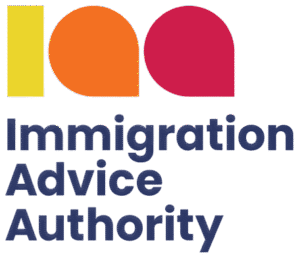2025 Immigration White Paper – What Employers Need to Know

The UK Government’s latest immigration white paper signals a stricter direction for overseas recruitment. This guide outlines the key policy shifts, their impact on UK employers, and why expert legal support from immigration lawyers in London is essential for staying compliant in a tightening system.
A Tougher Tone – But Not a New System
The Government frames the reforms as a crackdown on low-skilled migration. However, the reality is a reset to historic visa policy principles. Employers need to understand what is changing, what is staying the same, and where risks now lie in terms of compliance and recruitment strategy.
Political Pressure Behind the Policy Shift
The 2025 UK immigration white paper responds directly to growing public concern about rising migration figures. With Reform UK gaining traction, the Government has shifted tone to appear tougher on immigration. The phrase “restoring control” is used repeatedly to signal a decisive stance.
Policy proposals focus on restricting low-wage migration while maintaining routes for high earners. This shift aligns immigration access more closely with perceived economic contribution. The underlying message is clear: only those viewed as beneficial to the UK economy will remain welcome under the redefined system.
Return to Traditional Sponsorship Model
The white paper confirms a return to the original purpose of the Skilled Worker visa, to support graduate-level roles. By raising the eligibility threshold to RQF Level 6, the Government removes mid-skilled positions from the sponsorship system.
Many lower-paid roles, such as those in care work and hospitality, have only recently become eligible for sponsorship. These short-term relaxations are now being reversed as part of a wider policy reset.
Employers should prepare for a more exclusive visa system focused on high-skilled, high-salary positions that meet stricter economic and regulatory criteria.
Key Visa and Policy Reforms Explained
From changes to Skilled Worker routes to adjustments in graduate and family visas, employers must navigate a tighter and more selective immigration framework. The following updates carry financial, operational, and recruitment implications for UK businesses.
Skilled Worker Visa – New Barriers for Mid-Skilled Roles
The Government will raise the minimum skill threshold for sponsorship to RQF Level 6, limiting access to roles that require a degree or equivalent qualification. This change redefines who qualifies as a skilled worker under the new system.
The Immigration Salary List will be scrapped. A new Temporary Shortage List will replace it, requiring evidence-based justification and sector input through the Migration Advisory Committee.
These reforms will restrict access to international talent in sectors that rely on mid-skilled roles. Care, hospitality, and construction employers are likely to be hardest hit.
Closure of Overseas Recruitment for Care Workers
The Health and Care Worker visa will no longer be available for new international care worker recruits. This effectively closes the primary route used by care providers to fill frontline roles through overseas sponsorship.
Employers must now focus on domestic recruitment, long-term workforce planning, and new training pipelines. Sponsorship will not be an option for new care workers entering the UK.
Transitional arrangements will remain in place until 2028, allowing current visa holders to remain, extend their stay, or switch routes, but no new care workers can enter under this visa.
Increased Immigration Skills Charge
The Immigration Skills Charge (ISC) will rise for the first time since 2017. Large sponsors will pay £1,320 for the first 12 months of sponsorship, with an additional £660 per 6-month extension. Small or charitable sponsors will pay £480 upfront, and £240 for each renewal period.
These increases will significantly impact employers filling multiple roles through sponsorship. Workforce budgets must now account for higher upfront costs and recurring charges throughout the visa period.
The new rates are expected to apply from the 2025–26 financial year, although the official implementation date has not yet been confirmed.
The exemptions are:
- Workers in specific PhD-level occupations.
- Individuals switching from a student visa to a Skilled Worker visa within the UK.
- Workers assigned a Certificate of Sponsorship for six months or less.
- EU nationals assigned a Certificate of Sponsorship under the Global Business Mobility route for up to three years.
Graduate Route Cut to 18 Months
The length of the Graduate visa will be reduced from 2 years to 18 months, limiting the period international graduates can work in the UK without sponsorship. This shortens the window for employers to assess, onboard, and retain skilled graduates before switching to a sponsored route.
Employers who rely on this pathway must now plan more strategically and earlier to secure long-term talent. Delayed sponsorship decisions could lead to skilled individuals leaving the workforce when their visa expires.
Universities and business groups have raised concerns that the change could damage the UK’s global competitiveness in higher education.
High-Skilled Visas See Boosts
The white paper outlines planned improvements to the Global Talent and Innovator Founder routes. Both will be simplified to make the application process faster and more accessible for individuals with exceptional skills in research, tech, and business innovation.
More places will be created for international research interns and specialists in science and design, widening access for employers in high-growth sectors. These reforms aim to support industries considered crucial to the UK’s economic growth.
The High Potential Individual route is expected to expand significantly, with the number of qualifying global universities anticipated to double by the end of 2025.
Compliance, Enforcement and New Oversight Mechanisms
The 2025 white paper outlines stricter compliance checks and introduces new enforcement tools. Employers must ensure their sponsorship systems are up to date and ready for review to avoid penalties, restrictions, or reputational damage under the expanded enforcement framework.
Sponsor Licence Compliance Gets Stricter
The white paper introduces new measures to tighten sponsor licence compliance. Sponsors flagged as high risk will be placed on formal improvement plans, limiting their ability to issue new Certificates of Sponsorship until key issues are resolved.
The Government will expand digital tracking of visa holders, allowing closer monitoring of sponsor activity and migrant status. Employers must maintain clear audit trails and keep their HR systems up to date.
Failure to meet compliance standards may result in penalties, licence suspensions, or caps on sponsored roles, directly affecting recruitment plans and business continuity.
Labour Market Evidence Group – Sector Input Required
A new Labour Market Evidence Group will be established to advise the Government on genuine skill shortages. Its role will be to provide data-driven recommendations on where immigration should be permitted, replacing older, less agile methods of shortage identification.
Employers must work through their industry bodies to ensure that workforce needs are accurately represented and reflected in their policies. Without sector input, key roles risk exclusion from future visa eligibility frameworks.
The group is expected to become operational in late 2025, making early engagement essential for businesses that rely on international recruitment.
Stronger English Language and Integration Rules
The white paper confirms stricter English language requirements across more visa categories. Main applicants and their dependents will need to meet higher standards in both written and spoken English to qualify for entry or extensions.
Applicants may also be required to show ongoing improvement in language ability over time. This reflects a shift toward continuous integration rather than one-time eligibility testing.
The reforms support broader social integration goals, aiming to ensure that migrants can fully participate in community life and reduce reliance on public services through improved communication skills.
Family Migration and Settlement – Major Changes Ahead
The Government proposes a unified and stricter approach to family migration. These updates will change eligibility rules, financial thresholds, and integration standards for dependents and long-term residents. Employers and sponsored workers planning family settlement should carefully review these developments to avoid disruptions in future applications.
Restructuring the Family Migration System
The white paper outlines plans to replace fragmented family visa routes with a single, unified framework. This new structure will apply consistent rules to all applicants, regardless of the sponsor’s immigration status, whether they are workers, students, refugees, or British citizens.
The restructured system will include measures to tackle forced marriage, reduce application abuse, and improve outcomes for victims of domestic abuse. New relationship and conduct standards will apply to all categories.
All UK residents seeking to bring family members into the country will be subject to the legal requirements, integration expectations, and financial thresholds.
Settlement to Require 10 Years of Residency
The UK will increase the standard residency requirement for Indefinite Leave to Remain (ILR) from five to ten years. This change represents a significant shift in the long-term pathway to settlement under UK immigration law.
A five-year route will still apply to specific exceptions. Family members of British citizens remain eligible for ILR after five years. However, it is currently unclear whether this exception extends to family members of individuals with settled status who have not naturalised.
A new points-based route to settlement will also be introduced. It is expected to reward public service, consistent tax contributions, and community engagement. However, the government has not yet defined what activities or contributions will qualify. A formal consultation is expected later in 2025.
For employers, these changes impact recruitment planning, retention strategies, and how international hires view long-term prospects in the UK.
Speak to Immigration Experts Who Understand Employer Needs
The 2025 immigration white paper introduces stricter rules, higher costs, and deeper scrutiny, but also presents opportunities for forward-thinking employers. Whether you’re facing care sector disruption or exploring Global Talent pathways, we’ll help you stay compliant and competitive.
Contact Cromwell Wilkes today for a tailored immigration strategy and sponsor licence support from experienced immigration lawyers in London.
Please complete this form with as much information as possible for your consultation. This will enable your appointed Cromwell Wilkes lawyer to provide you with the best service and support. Rest assured that we will prioritise your inquiry, and you should receive a response within 24-48 hours.
FAQs – UK Immigration White Paper for Employers
When will the new Skilled Worker visa reforms take effect?
Reforms will be phased in from 2025, with complete implementation expected by 2026 following consultation with the Migration Advisory Committee (MAC).
Can care workers still come to the UK under any visa?
Only care workers already in the UK can remain, extend their stay, or switch to a different visa route. New overseas recruitment is no longer permitted for frontline care roles.
What does RQF Level 6 mean for my business?
Only graduate-level roles or higher will qualify for sponsorship under the new rules. This removes eligibility for mid-skilled, lower-paid positions across many sectors.
Will the family migration rules affect current visa holders?
Yes. The revised family migration UK rules will apply to all UK residents. Existing visa holders must meet the updated eligibility criteria when renewing or switching routes.
Can you help with sponsor compliance?
Yes. Our immigration lawyers in London provide expert support with sponsor licence compliance, internal audits, sponsorship strategy, and adapting to the upcoming reforms.
CONTACT CROMWELL WILKES IMMIGRATION LAWYERS
CONTACT CROMWELL
WILKES IMMIGRATION
LAWYERS
Cromwell Wilkes is ready to assist if you need expert work visa legal advice. We offer consultations by phone or in person at our London office.
Contact us today to discuss your situation and learn how we can help you achieve your immigration goals.
If you plan to launch, grow, or invest in the UK, expert legal support for your UK work visa application can make all the difference.




